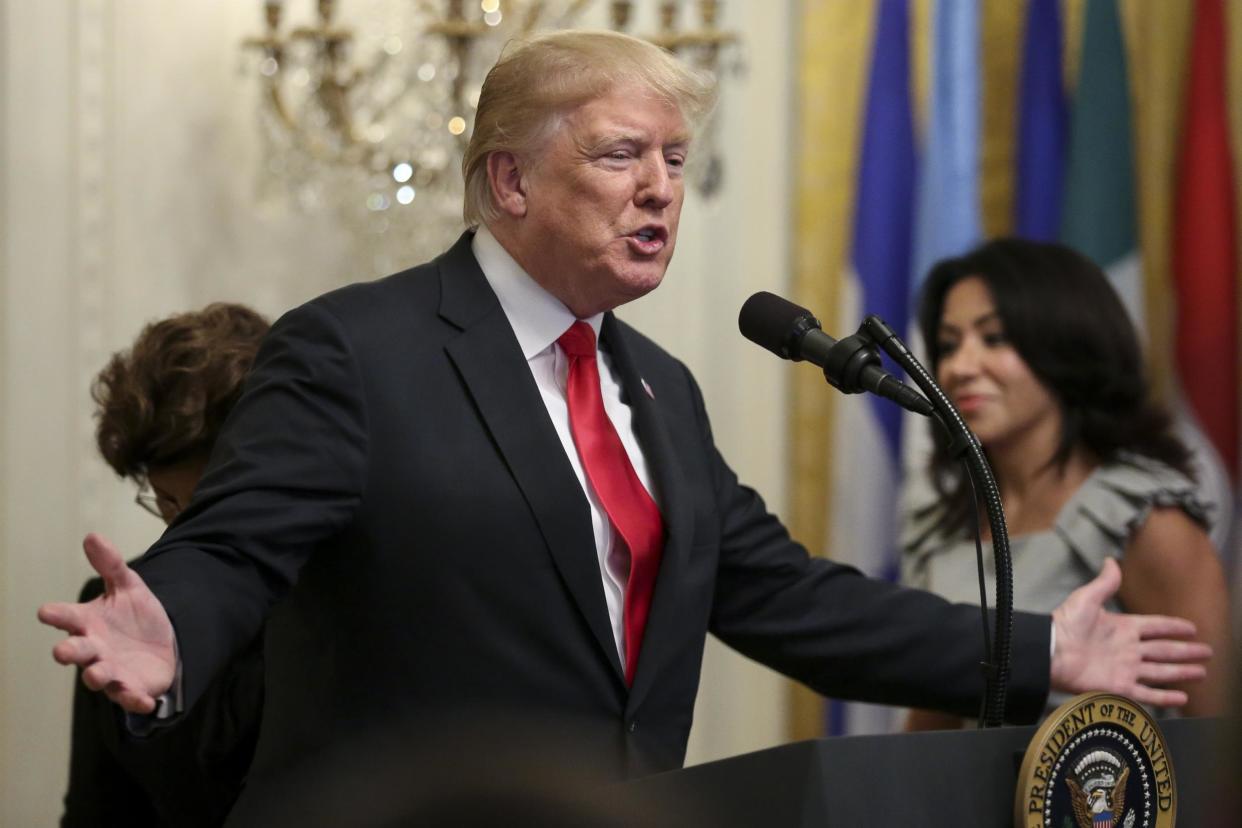President Trump seems to have forgotten that America was made great by prosperous trade deals

In his expose of the chaos in the White House, Fear, the veteran journalist Bob Woodward tells the story of the preparations for a speech that President Trump was to make on economics. Going through a draft on the way back from a G20 summit, Mr Trump, according to the account, scribbled his thoughts down in neat, clean penmanship. He wrote: “TRADE IS BAD”.
No one, then, should be surprised that Mr Trump has decided to extend his trade war with China, having previously started skirmishes with the European Union, Japan, South Korea, Canada, Mexico and the World Trade Organisation as a whole (he is rumoured to want America to withdraw from it).
If Mr Trump has a point, it is that America runs famously large deficits with most of its advanced trading partners. Broadly he takes the view that these derive from the bad deals struck by his various predecessors, such as the North American Free Trade Agreement (Nafta), as well as the now-aborted TTIP (Transatlantic Trade and Investment Partnership) and TPP (Trans-Pacific Partnership). Again, putting in crudely, Mr Trump’s view is that America has been “screwed” by these nations, the injury added to by additional costly US defence obligations for the Europeans, Koreans and Japanese.
Sometimes, it is fair to say, China, in particular, has deployed tactics in its international trade that have been unfair, and complained about by Mr Trump’s more liberal predecessors – currency manipulation, intellectual copyright theft and running an economy where labour rights and environmental standards are nowhere near as high as America’s.
Even so, the broader truth that Mr Trump seems unable to accept is that in high-wage, high-technology economies such as Japan and Germany, or in more basic lower-wage economies such as Mexico and China, American goods and services are being out-competed by the foreign alternatives. In many areas, such as Japanese cars or Chinese baseball caps (such as the ones Mr Trump favours, with “Make America Great Again” emblazoned across them) are made more economically and at a higher standard than they are in the United States. If, as seems to be the case, Mr Trump wants to turn Americans back into factory workers, make them sweat in the rag trade, or send them down coal mines or into hot, noisy steel mills, then he is certainly going the right way about it.
However, American industry and consumers will be the poorer for the higher prices that will be generated for US-made goods. Around 80 per cent of America’s economy is devoted to service industries. It is a natural development that, as economies grow and their citizens become more prosperous, they move out of mining and manufacturing and into selling each other pension plans, expensive coffee and computer games. Mr Trump’s policy of making America into a manufacturing nation as it was in, say, the 1940s, is literally retrograde.
In fact, Mr Trump’s protectionist, isolationist, atavistic policies are the very antithesis of the spirit of American capitalism that did indeed once make America the most dynamic, as well as the biggest, economy on earth, with the highest standards of living and, crucially, able to afford to be the arsenal of democracy in two world wars. It was not the fact of IBM or US Steel that made America great, but the policies of free trade and industrial change and competition that did so.
In the golden era after the Second World War, American greatness was underpinned by an international order – economic, military and diplomatic – that was founded by the United States for the benefit of the whole world. International free trade; Nato; the United Nations; the defence of Japan and South Korea – all have been built and maintained by successive generations, and now all are placed in jeopardy by a president who believes “TRADE IS BAD”.
It is a pitiable state of affairs, and the only policy left to America’s friends – and would-be friends such as China who have few real clashes of interest with the US – is patience. At best, such actions are Mr Trump’s way of starting a negotiation, and therefore may be humoured in the hope of a happier ending (as with his bellicosity towards North Korea). At worst, other countries will have to take a long view, believe that one day the Trumpian nightmare will pass, and be ready to try and rebuild the world order. There may well be not much of it left.

 Yahoo News
Yahoo News 
